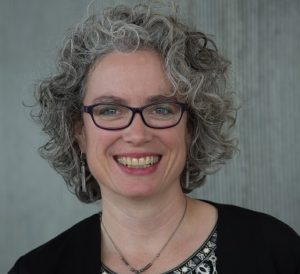By Holly McGuire
 I felt so fortunate to be able to dip in to the 2017 AMP conference in Portland back in mid-August. The long weekend was organized by the Western States Center as a training and networking conference—AMP stands for Activists Mobilizing for Power. It was an energizing and welcoming scene from the moment I walked into the PSU student center and squeezed into an elevator packed with familiar faces from Portland’s activism scene, and listened at the brief opening plenary to voices raised from around the West.
I felt so fortunate to be able to dip in to the 2017 AMP conference in Portland back in mid-August. The long weekend was organized by the Western States Center as a training and networking conference—AMP stands for Activists Mobilizing for Power. It was an energizing and welcoming scene from the moment I walked into the PSU student center and squeezed into an elevator packed with familiar faces from Portland’s activism scene, and listened at the brief opening plenary to voices raised from around the West.
I spent the day with folks from Wyoming, Idaho, Montana, Washington, as well as Oregon, in a workshop on working with tribal organizations, “Finding Common Ground.” The facilitators were trying this concept out for the first time together, and had put together a rich and full day. One, Rachel Lorenzo, is the founder of Indigenous Women Rising, a collective focused on ensuring access to reproductive rights, and that access includes indigenous women and families. She is Mescalero Apache, Laguna Pueblo, and Xicana. The other, Jason Pretty Boy, of Wowasi Consulting, is a Standing Rock Sioux Tribal member. They brought their different experiences and perspectives to a wide ranging conversation, starting in the morning with a historical grounding from the year 1492, forward, and the deep injustices, traumas, and disruptions that mark the experience of the many tribes that make up the indigenous population of the contemporary United States. The workshop was also fortunate to have native participants who offered their own grounded perspectives in the conversation.
The afternoon built off of this important context to help participants think about how to start identifying the barriers in themselves and their organizations to work more effectively with tribal organizations. We were all asked to share our fears around engaging with Indigenous people, what underlying assumptions we might have that can get in the way, and how making space for indigenous individuals and organizations at the table will change things. People reflected on these questions from both individual and organizational perspectives, and the resulting exercise revealed real challenges, and also the energy in the participants to meet those challenges, and to seek help to do better.
I appreciated the framing and space the facilitators created to walk in difficult territory with strangers. There was an explicit acknowledgement at the opening that these are charged topics for many of us, and a clear ask that when people felt overwhelmed that they avoid big expressions of emotion. The history of people of color needing to be stoic, and of white people asking for extra support and space to express themselves was raised, and a higher bar set for participants. Both halves of the day opened with movement activities to help us all get into our bodies and the room, and those were definitely useful for this participant.
I came away with an increased awareness of the diversity of particular lived cultures of the many tribes on this continent, as well as some of the unifying common threads wrought by government policy and the powerful and persistent racism in mass culture, institutions, and our individual interactions. Most clearly, I felt reinforced in the knowledge that the most important voices in the conversations between mainstream and tribal organizations are indigenous ones. We must let communities lead the work, to answer even the basic question of whether we have anything to contribute. I left my day at AMP feeling hope for the power of the grassroots organizing that is happening, humility about my role in supporting the tribal organizations we work with in the Oregon IDA Initiative, and a personal commitment to listen—not so I can respond, but so I can better understand.
